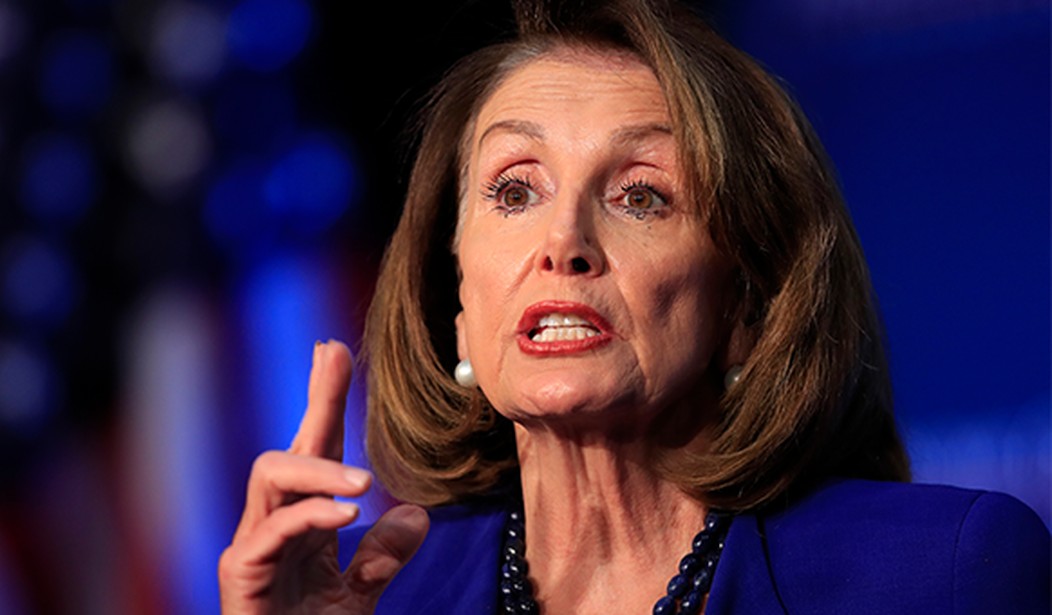Donald Trump and Nancy Pelosi finally agree on something.
The speaker of the House wants to change how Medicare pays for drugs. She believes that once the FDA approves a new treatment, government-appointed "independent" arbitrators should determine a fair price for these medicines.
That'd be a big change from the status quo. Right now, for drugs picked up at the pharmacy, private insurers who sponsor Medicare drug plans negotiate directly with drug manufacturers. For advanced medicines, Medicare reimburses providers based on the average, market-based sales price.
The Trump administration reportedly likes Pelosi's plan.
It's easy to see why arbitration is appealing. In theory, it seems like a reasonable, effective way to contain drug spending.
But in practice, arbitration wouldn't be a fair fight. The government would control virtually every aspect of the process, hand-picking the arbitrator and setting the rules of engagement. Arbitrators would inevitably side with the government and dictate artificially low prices. And research companies would have no way to appeal the government's decision.
If this sounds like prices controls, that's because it is. Arbitration is just a clever way of sneaking price controls into Medicare. This new system would slow the pace of drug development and keep lifesaving new therapies away from sick Americans.
For a sense of how this would work, consider Medicare's "Part D" prescription drug benefit. Right now, after the FDA approves a new medicine, the manufacturer enters pricing negotiations with the insurers who sponsor and sell drug plans to Medicare beneficiaries. Sometimes, the two parties can't agree on a price, and negotiations stall.
Recommended
That's where the new proposal comes in. If the two parties reach an impasse, government officials could trigger the arbitration process. The drug maker and Medicare officials would each make the case for their preferred prices to a supposedly neutral third party. After considering arguments from both sides, the arbitrator would set the drug's price.
Speaker Pelosi's proposal hasn't been fully fleshed out yet. It's unclear whether the arbitrator would choose solely between the two options or choose a third price of his choosing. Either way, though, the decision would be final and legally binding.
Arbitration would throw the drug development process into disarray.
It costs billions of dollars to develop just one new medicine. The process, which can take more than a decade, is rife with failure. Less than 12 percent of drugs in phase I clinical trials ever gain FDA approval. Drug manufacturers only take this huge risk because a single successful product can generate enough revenue to cover the costs of all their projects.
If the government can indirectly impose price controls through handpicked, biased arbitrators, companies would have little reason to gamble their time and money on risky research projects.
Investment capital would flow away from the biopharmaceutical sector towards safer, more predictable industries. Drug development would grind to a halt. Patients battling cancer, Alzheimer's, and a host of other diseases would be robbed of potential cures.
Arbitration isn't just bad policy -- it's bad politics. We've already seen how voters dislike the concept of "independent" arbitrators making healthcare decisions on behalf of sick patients.
Just look at the Independent Payment Advisory Board, a 15-person panel created by the Affordable Care Act to help reign in Medicare spending. IPAB was given the power to unilaterally cut Medicare payments -- and thus make certain procedures and treatments inaccessible to patients -- if healthcare spending grew too quickly.
The public pushed back against this all-powerful, unaccountable "death panel" from the start. After years of backlash, Congress repealed IPAB in February 2018 with bipartisan support.
Arbitration might temporarily reduce government spending, but only by imposing de facto price controls that stifle research and hurt future patients. Let's hope congressional leaders and White House officials agree to shelve this latest proposal.

























Join the conversation as a VIP Member